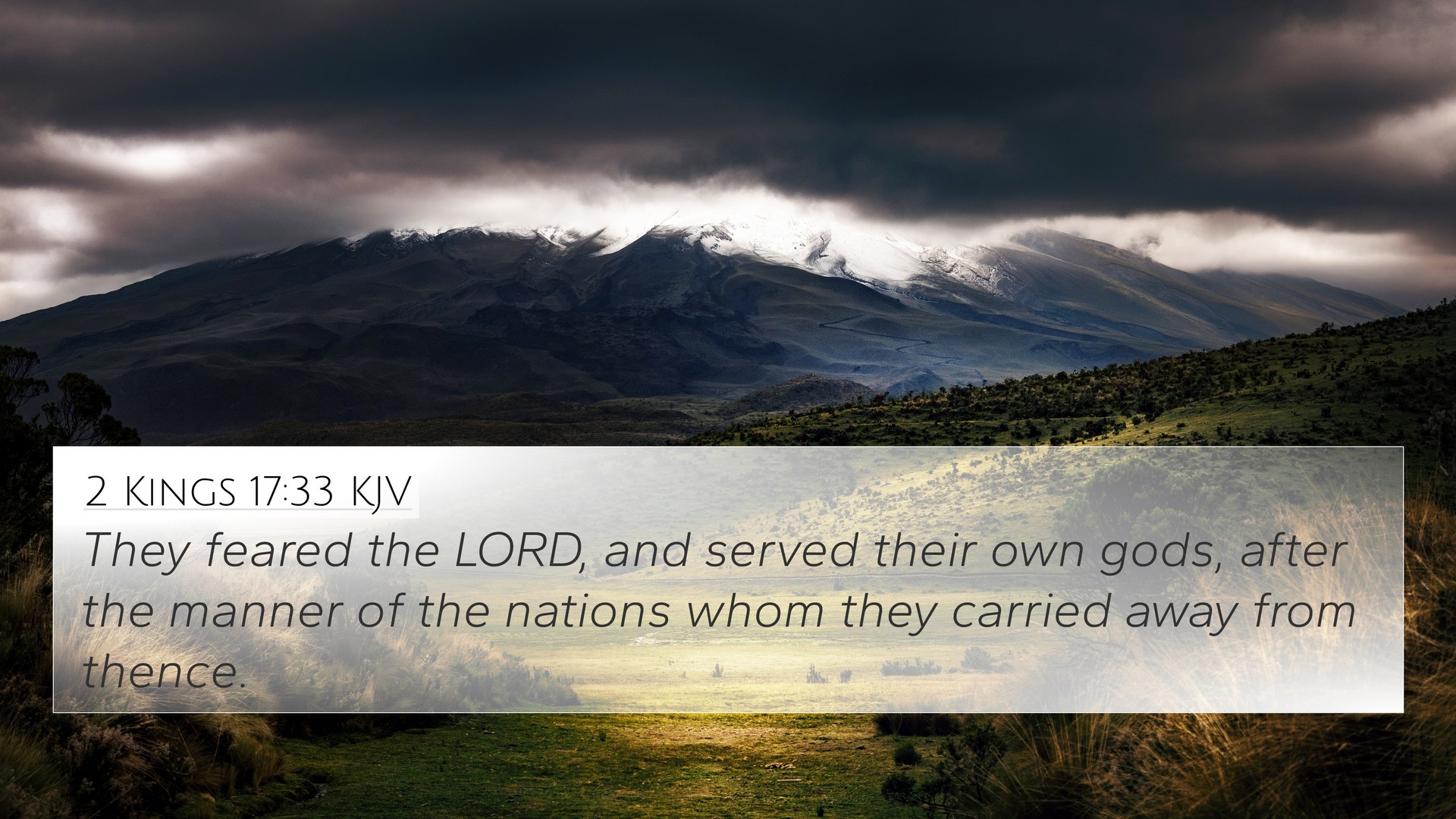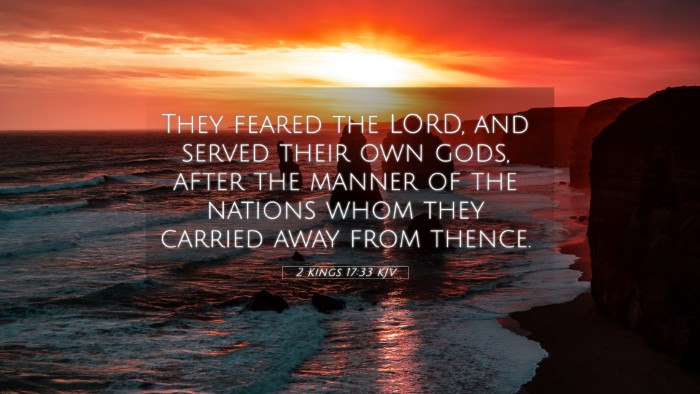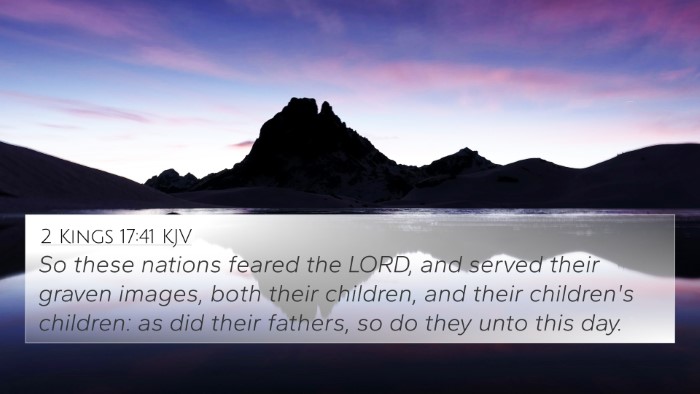Old Testament
Genesis Exodus Leviticus Numbers Deuteronomy Joshua Judges Ruth 1 Samuel 2 Samuel 1 Kings 2 Kings 1 Chronicles 2 Chronicles Ezra Nehemiah Esther Job Psalms Proverbs Ecclesiastes Song of Solomon Isaiah Jeremiah Lamentations Ezekiel Daniel Hosea Joel Amos Obadiah Jonah Micah Nahum Habakkuk Zephaniah Haggai Zechariah MalachiVerse
2 Kings 17:1 2 Kings 17:2 2 Kings 17:3 2 Kings 17:4 2 Kings 17:5 2 Kings 17:6 2 Kings 17:7 2 Kings 17:8 2 Kings 17:9 2 Kings 17:10 2 Kings 17:11 2 Kings 17:12 2 Kings 17:13 2 Kings 17:14 2 Kings 17:15 2 Kings 17:16 2 Kings 17:17 2 Kings 17:18 2 Kings 17:19 2 Kings 17:20 2 Kings 17:21 2 Kings 17:22 2 Kings 17:23 2 Kings 17:24 2 Kings 17:25 2 Kings 17:26 2 Kings 17:27 2 Kings 17:28 2 Kings 17:29 2 Kings 17:30 2 Kings 17:31 2 Kings 17:32 2 Kings 17:33 2 Kings 17:34 2 Kings 17:35 2 Kings 17:36 2 Kings 17:37 2 Kings 17:38 2 Kings 17:39 2 Kings 17:40 2 Kings 17:41







